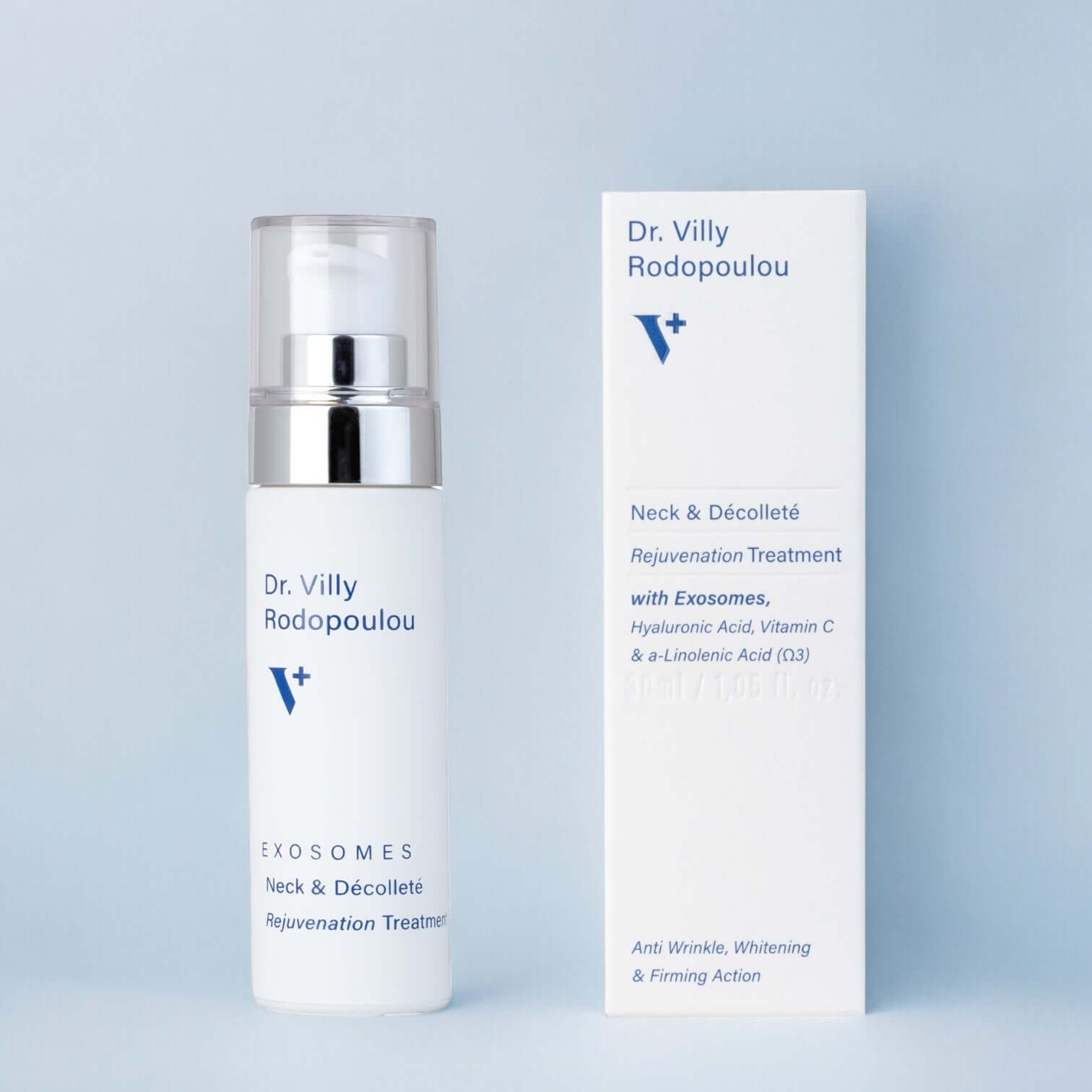Beauty at the Nano level: The revolutionary role of Exosomes in Skincare

Exosomes, small extracellular vesicles ranging from 30 to 200 nanometres, have garnered significant attention in the field of cosmetics due to their potential to improve skin health and appearance. These nanovesicles, secreted by various cell types including stem cells, contain proteins, lipids, and genetic material such as mRNA and miRNA. Their ability to facilitate intercellular communication and modulate biological processes makes them valuable in skin care and treatment of dermatological conditions.
Innovative Use in Cosmetics
- Anti-Aging and Skin Rejuvenation:
Exosomes have been shown to reduce wrinkles, enhance skin hydration, and improve elasticity. They achieve this by modulating the microenvironment of skin cells, promoting collagen production, and reducing inflammation caused by UV radiation.
They play a role in preventing the degradation of the extracellular matrix (ECM), which is crucial in maintaining skin structure and reducing signs of aging such as wrinkles and loss of skin elasticity.
- Treatment of Skin Conditions:
Exosomes have potential therapeutic applications in treating various dermatological diseases such as psoriasis, atopic dermatitis, and vitiligo. They can aid in tissue regeneration and repair by promoting cell differentiation and reducing inflammation.
For instance, adipose-derived stem cell exosomes have been used to treat facial redness in atopic dermatitis patients, demonstrating their anti-inflammatory properties.
Sources of Exosomes
Exosomes can be sourced from different types of cells:
Stem Cells, particularly from adipose-derived stem cells and mesenchymal stem cells. These are preferred due to their regenerative capabilities and abundance in various tissues.
Platelets: Platelet-derived exosomes are rich in growth factors and proteins that promote healing and tissue regeneration.
Plant Cells: Some studies have explored the use of plant-derived exosomes which can offer a vegan and more readily available source for cosmetic applications. Dr. Villy Skincare uses Citrus Exosomes, derived from Citrus Reticulata extract. The Exosomes Neck & Décolleté Cream is recommended for firming and rejuvenating the skin in those areas and is perfect for the face as well, while the Triple Effect Signature Body Cream Gel is aimed at reducing cellulite and sculpting the body contour while significantly improving the body skin’s condition.
Effectiveness
The effectiveness of exosome-based therapies lies in their ability to deliver bioactive molecules directly to target cells, modulating gene expression and promoting cellular repair mechanisms. Their small size and lipid bilayer structure allow them to penetrate the skin barrier more effectively than many traditional treatments.
Regulatory Landscape *
Dr. Villy Skincare uses strictly plant-derived Exosomes. The use of human-derived exosomes in cosmetics is still under tight regulatory scrutiny and is still not allowed in the USA and the European Union, but as Exosome-based therapies and cosmetics continue to revolutionize skincare and treatment of dermatological conditions, and as scientifi research progresses, regulatory frameworks will continue to evolve and adapt, guaranteeing that only the best and safest products enter the market.
*The scientific information on the use of exosomes in cosmetics is sourced from peer-reviewed articles and reputable journals such as Aesthetic Plastic Surgery Review, the MDPI Journal on Cosmetics and BioMed Central.




